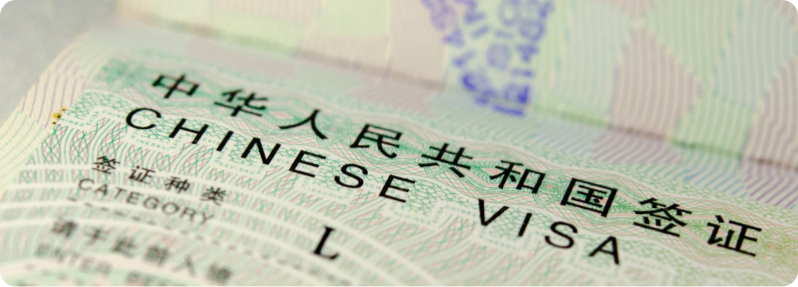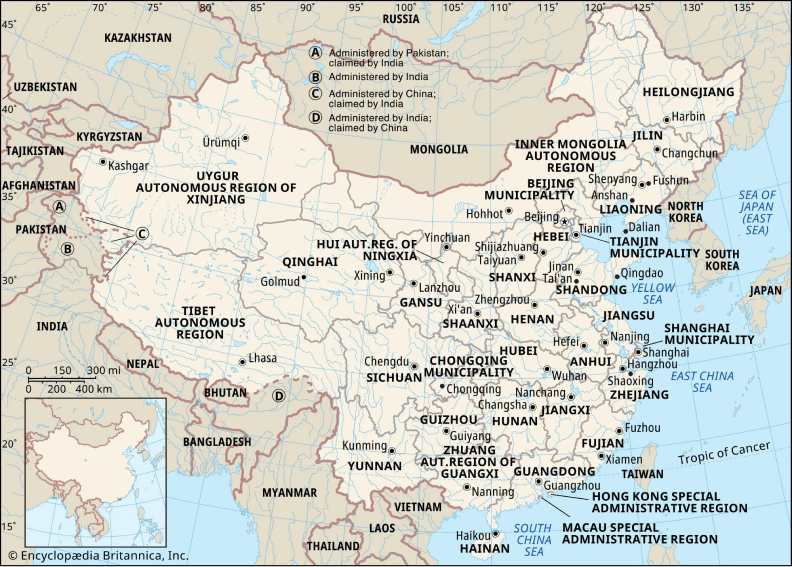LAST DAY! ⏳ Secure top scores and your uni dream. 💡Only Rp 90,000 for 40 minutes. Offer ends MIDNIGHT!
LAST DAY! ⏳ Secure top scores and your uni dream.
💡Only Rp 90,000/hour TODAY. Offer ends MIDNIGHT!
LAST DAY! ⏳ Secure top scores and your uni dream. 💡Only Rp 90,000 for 40 minutes. Offer ends MIDNIGHT!
LAST DAY! ⏳ Secure top scores and your uni dream.
💡Only Rp 90,000/hour TODAY. Offer ends MIDNIGHT!

High-Quality Education

Safe and Peaceful

Work Opportunities

Beautiful City and Nature

Affordable Cost




Here are some of the reasons why studying in China is a good idea:
China is an expansive nation, resulting in significant variations in the cost of living based on the city or region you choose to reside in. Similar to many other countries, urban areas tend to have a higher cost of living compared to rural areas.Take international students, for instance. The cost of living in Shanghai, the highly sought-after city in China, ranges from 54,000 to 96,000 CNY per year (estimated). These living expenses encompass a range of essential items such as accommodation, electricity, water, gas, internet, transportation, and food.
Tuition fees vary depending on the discipline you choose to study, the degree level, and the university in which you enroll. Tuition for international students:

For international students aiming to study in China, obtaining a student visa is crucial. Depending on the length of the study program, you’ll need to apply for either an X1 visa (for programs over six months) or an X2 visa (for shorter courses). Essential documents include a valid passport, an admission notice from a Chinese university, and a JW201 or JW202 form from the Chinese Ministry of Education, along with a health certificate. Once in China with an X1 visa, students must apply for a Residence Permit within 30 days to legally stay for the duration of their studies. This process ensures that international students have the required permissions and paperwork for their academic pursuits in China.
Student visa China requirements
To apply for a student visa to study in China, you’ll need the following:
To obtain an X (study) visa for China, applicants must visit the Visa Office of the Chinese embassy in their home country with their admissions letter, Visa Application Form (JW202 form), and other required documents. Mailed applications are not accepted; instead, an online submission platform is recommended for efficiency. Additionally, current regulations prohibit entering Beijing on a tourist (L) visa and converting it to a study (X) visa within Beijing.
The Proses To Get Student Visa:
To apply for a student visa to study in China, you’ll need the following:
To obtain an X (study) visa for China, applicants must visit the Visa Office of the Chinese embassy in their home country with their admissions letter, Visa Application Form (JW202 form), and other required documents. Mailed applications are not accepted; instead, an online submission platform is recommended for efficiency. Additionally, current regulations prohibit entering Beijing on a tourist (L) visa and converting it to a study (X) visa within Beijing.
China’s healthcare system has evolved significantly and offers various healthcare services that cater to the needs of its population, including international students. Here’s an overview of the types of healthcare systems available in China that international students can access:
1. Public Hospitals
Overview: These are government-funded hospitals and make up the majority of healthcare facilities in China. They range from large tertiary hospitals in cities that offer specialized and high-quality care, to smaller community hospitals.
Features: Public hospitals are usually the most affordable option for medical treatment. However, they can be crowded, and the level of English spoken by medical staff may vary significantly.
2. Private Hospitals and Clinics
Overview: Private healthcare facilities are growing in popularity, especially among foreigners and affluent Chinese. They are known for providing high-quality care with less waiting time compared to public hospitals.
Features: Private hospitals often have staff who speak English and other foreign languages, which makes them a preferred choice for many international students. They typically offer a more comfortable environment and more personalized care, but at a higher cost.






Furthermore, our insurance company provides coverage for outpatient services during the insured period, with a daily limit of 600 RMB. For outpatient reimbursement, there is a starting line of 650 RMB. Once this amount is exceeded, the insured can receive 85% of the excess. Reimbursements will only be processed once the total amount reaches the starting line of 650 RMB. Any amount below this threshold will not be eligible for reimbursement.

When applying for health insurance in China, it is necessary to present your passport along with the application. There are two methods to acquire health insurance:

• University of Nottingham
• Chinese University of Hong Kong
• Xian Jiaotong Liverpool University

• University of Nottingham
• Chinese University of Hong Kong
• Asia Europe Business School

• Chinese University of Hong Kong
• Asia Europe Business School
• University of Nottingham

• University of Nottingham
• Chinese University of Hong Kong
• Nankai University

• Les Roches China
• Le Cordon Bleu - Shanghai
• NBlue Mountain
| Accommodation expenses in China for international students | Expenses (approx) |
|---|---|
| Student residence halls | 995 CNY to 2,655 CNY per month |
| Renting a flat | 1,660 CNY to 6,637 CNY per month |
| Homestay | 2,320 CNY to 3,650 CNY per month |
| Hostel | 119 CNY per night |









China has experienced remarkable economic growth over the past three decades. China presents a wide range of career opportunities and jobs for international talents, along with competitive compensation and a remarkable work experience. As a global leader in industrialization, business, innovation, and technology, China is an appealing destination. The Chinese Government enforces regulations on working hours for international students, limiting weekly hours to 8 hours and monthly hours to 40 hours. During summer and winter vacations, students can work 16 hours per week and 80 hours per month.
International students are eligible to work part-time if they meet the following requirements:

With its vast expanse stretching over 3,100 miles from east to west and 3,400 miles from north to south, China boasts a diverse range of landscapes that will leave you in awe. The region encompasses a diverse range of landscapes, from majestic mountains and expansive plateaus to arid deserts and lush forests. China boasts a vast expanse of mountainous terrain, covering a significant portion of its land area. Mount Everest, the majestic peak that towers above the world, proudly stands on the border between China and Nepal. China boasts an extensive network of rivers.The Yangtze and the Yellow Rivers hold immense significance. The Yangtze, stretching an impressive 3,915 miles (6,300 kilometers), proudly holds the title of the world’s third largest river.
China spans an impressive distance of approximately 3,250 miles (5,250 km) from east to west and 3,400 miles (5,500 km) from north to south. The land frontier spans approximately 12,400 miles (20,000 km), while the coastline stretches for around 8,700 miles (14,000 km). The country shares borders with Mongolia to the north, Russia and North Korea to the northeast, the Yellow Sea and the East China Sea to the east, the South China Sea to the southeast, Vietnam, Laos, Myanmar (Burma), India, Bhutan, and Nepal to the south, Pakistan to the southwest, and Afghanistan, Tajikistan, Kyrgyzstan, and Kazakhstan to the west. China’s geographical proximity extends beyond its 14 neighboring countries. It also shares borders with South Korea and Japan, separated by the Yellow Sea, as well as the Philippines, located beyond the South China Sea.
Do’s
Don’ts

High-Quality Education

Safe and Peaceful

Work Opportunities

Beautiful City and Nature

Affordable Cost




Here are some of the reasons why studying in China is a good idea:
China is an expansive nation, resulting in significant variations in the cost of living based on the city or region you choose to reside in. Similar to many other countries, urban areas tend to have a higher cost of living compared to rural areas.Take international students, for instance. The cost of living in Shanghai, the highly sought-after city in China, ranges from 54,000 to 96,000 CNY per year (estimated). These living expenses encompass a range of essential items such as accommodation, electricity, water, gas, internet, transportation, and food.
Tuition fees vary depending on the discipline you choose to study, the degree level, and the university in which you enroll. Tuition for international students:

For international students aiming to study in China, obtaining a student visa is crucial. Depending on the length of the study program, you’ll need to apply for either an X1 visa (for programs over six months) or an X2 visa (for shorter courses). Essential documents include a valid passport, an admission notice from a Chinese university, and a JW201 or JW202 form from the Chinese Ministry of Education, along with a health certificate. Once in China with an X1 visa, students must apply for a Residence Permit within 30 days to legally stay for the duration of their studies. This process ensures that international students have the required permissions and paperwork for their academic pursuits in China.
Student visa China requirements
To apply for a student visa to study in China, you’ll need the following:
To obtain an X (study) visa for China, applicants must visit the Visa Office of the Chinese embassy in their home country with their admissions letter, Visa Application Form (JW202 form), and other required documents. Mailed applications are not accepted; instead, an online submission platform is recommended for efficiency. Additionally, current regulations prohibit entering Beijing on a tourist (L) visa and converting it to a study (X) visa within Beijing.
The Proses To Get Student Visa:
To apply for a student visa to study in China, you’ll need the following:
To obtain an X (study) visa for China, applicants must visit the Visa Office of the Chinese embassy in their home country with their admissions letter, Visa Application Form (JW202 form), and other required documents. Mailed applications are not accepted; instead, an online submission platform is recommended for efficiency. Additionally, current regulations prohibit entering Beijing on a tourist (L) visa and converting it to a study (X) visa within Beijing.

• University of Nottingham
• Chinese University of Hong Kong
• Xian Jiaotong Liverpool University

• University of Nottingham
• Chinese University of Hong Kong
• Asia Europe Business School

• Chinese University of Hong Kong
• Asia Europe Business School
• University of Nottingham

• University of Nottingham
• Chinese University of Hong Kong
• Nankai University

• Les Roches China
• Le Cordon Bleu – Shanghai
• NBlue Mountain
| Accommodation expenses in China for international students | Expenses (approx) |
|---|---|
| Student residence halls | 995 CNY to 2,655 CNY per month |
| Renting a flat | 1,660 CNY to 6,637 CNY per month |
| Homestay | 2,320 CNY to 3,650 CNY per month |
| Hostel | 119 CNY per night |

Register With Gold Star Education And Talk With Our Expert Counsellor








China has experienced remarkable economic growth over the past three decades. China presents a wide range of career opportunities and jobs for international talents, along with competitive compensation and a remarkable work experience. As a global leader in industrialization, business, innovation, and technology, China is an appealing destination. The Chinese Government enforces regulations on working hours for international students, limiting weekly hours to 8 hours and monthly hours to 40 hours. During summer and winter vacations, students can work 16 hours per week and 80 hours per month.
International students are eligible to work part-time if they meet the following requirements:

With its vast expanse stretching over 3,100 miles from east to west and 3,400 miles from north to south, China boasts a diverse range of landscapes that will leave you in awe. The region encompasses a diverse range of landscapes, from majestic mountains and expansive plateaus to arid deserts and lush forests. China boasts a vast expanse of mountainous terrain, covering a significant portion of its land area. Mount Everest, the majestic peak that towers above the world, proudly stands on the border between China and Nepal. China boasts an extensive network of rivers.The Yangtze and the Yellow Rivers hold immense significance. The Yangtze, stretching an impressive 3,915 miles (6,300 kilometers), proudly holds the title of the world’s third largest river.
China spans an impressive distance of approximately 3,250 miles (5,250 km) from east to west and 3,400 miles (5,500 km) from north to south. The land frontier spans approximately 12,400 miles (20,000 km), while the coastline stretches for around 8,700 miles (14,000 km). The country shares borders with Mongolia to the north, Russia and North Korea to the northeast, the Yellow Sea and the East China Sea to the east, the South China Sea to the southeast, Vietnam, Laos, Myanmar (Burma), India, Bhutan, and Nepal to the south, Pakistan to the southwest, and Afghanistan, Tajikistan, Kyrgyzstan, and Kazakhstan to the west. China’s geographical proximity extends beyond its 14 neighboring countries. It also shares borders with South Korea and Japan, separated by the Yellow Sea, as well as the Philippines, located beyond the South China Sea.
Do’s
Don’ts
Customer Service
Customer Service

Enhance your platform experience to the fullest.
Register now and unlock a world of exclusive benefits tailored just for you.